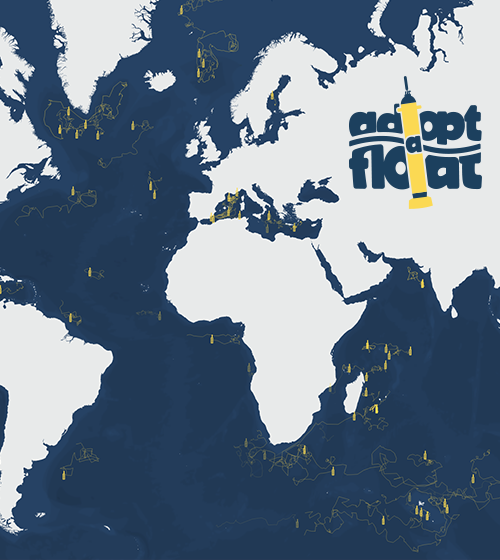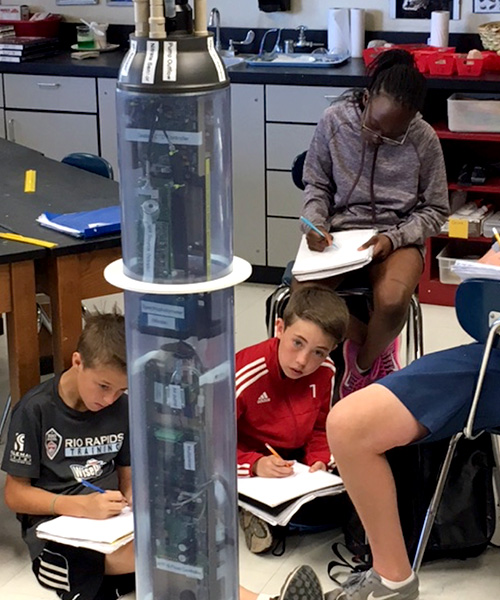Science-based outreach activities
Biogeochemical-Argo shares the ambition to enhance ocean literacy. Combining cutting-edge research and innovative technology to observe and explore the ocean, it provides ideal foundations for science-based outreach activities. Inspired by the international network, the motivation for such activities can be twofold: firstly, they may find a place in a formal but also an informal educational context, and address a mainly non-scientific audience with a focus on young people. Secondly, they may give training opportunities centered on outreach and science communication for early career and confirmed scientists.
The adopt a float program brings ocean sciences into classrooms and offers students the possibility to discover the ocean and the importance of studying it to better understand and protect it. Students from primary and secondary school levels of all countries around the world are welcomed and, in a scientific, cultural and citizen-based way, guided to approach ocean topics and marine sciences.
The program was initiated in 2011 at the Institut de la Mer de Villefranche and is based on the idea that a school class can adopt a Biogeochemical-Argo profiling float and follow it during its scientific voyage. Following the float encourages the students to “visit” an oceanic zone (e.g. the Mediterranean Sea, the North Atlantic or the Southern Ocean). It also allows them to access real-time data and thus to participate in ocean observations collected by the float.
As multidisciplinary science domains are associated, the program naturally establishes connections between many ocean sciences professionals, students and educators and facilitates through meetings, exchanges and activities. It therefore represents an opportunity to share knowledge and skills, and also offers training possibilities for early career scientists on ocean sciences communication and mediation.
With its actions and approach, the adopt a float program contributes in a very concrete manner to ocean education and fosters Ocean Literacy with an intergenerational intention. The involved team is committed in advocating for the Sustainable Development Goals and the missions of the United Nations Decade of Ocean Science for Sustainable Development (2021-2030).
Check out adopt a floatAs an open concept, “adopt a float” has been adapted to the use within the "USA-SOCCOM program".
The Southern Ocean Carbon and Climate Observations and Modeling (SOCCOM) project partners with teachers and classrooms across the United States to inspire and educate students about the Southern Ocean and climate change through its “adopt a float” initiative. It creates a fun and engaging opportunity for elementary- and secondary-aged students to engage directly with world-class scientists and learn about their research by naming and tracking SOCCOM floats.
The process is simple. As SOCCOM’s Adopt-a-Float lead, MBARI works directly with science teachers interested in oceanography and climate and pairs them with SOCCOM scientists scheduled to deploy floats in the Southern Ocean. MBARI then provides the teachers with background materials developed by Climate Central (reports, videos, graphics, animations) on the Southern Ocean and on the specific work being done by SOCCOM researchers. The students have the opportunity to give a soon-to-be-deployed float a name, and follow its progress to sea through blogs written by their paired SOCCOM scientists. In addition, each classroom can track its “adopted” float’s trajectory and data collection in real-time online.
Check out adopt a float SOCCOM


